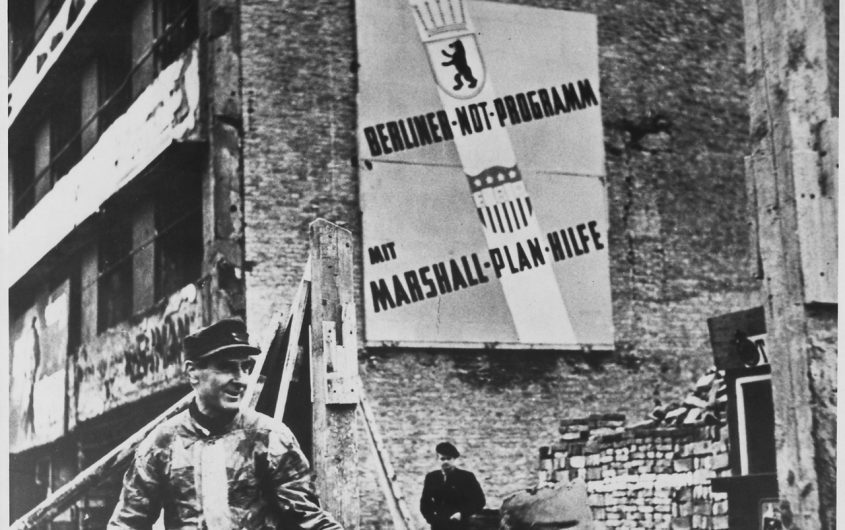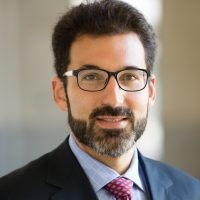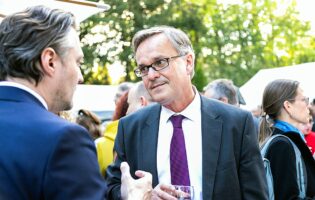
U.S. National Archives and Records Administration
Civil Society Can Lead the Way

Matthew Rojansky
Woodrow Wilson Center
Matthew Rojansky is Director of the Kennan Institute at the Woodrow Wilson Center in Washington, DC. An expert on U.S. relations with the states of the former Soviet Union, especially Russia, Ukraine, Belarus, and Moldova, he has advised governments, intergovernmental organizations, and major private actors on conflict resolution and efforts to enhance shared security throughout the Euro-Atlantic and Eurasian region. Rojansky previously served as Deputy Director of the Russia and Eurasia Program at the Carnegie Endowment for International Peace and as Executive Director of the Partnership for a Secure America (PSA). He is an adjunct professor at Johns Hopkins SAIS, and serves as U.S. Executive Secretary for the Dartmouth Conference, a track-two U.S.-Russian conflict resolution initiative begun in 1960.
He is a 2017-2018 participant in AICGS’ project “A German-American Dialogue of the Next Generation: Global Responsibility, Joint Engagement,” sponsored by the Transatlantik-Programm der Bundesrepublik Deutschland aus Mitteln des European Recovery Program (ERP) des Bundesministeriums für Wirtschaft und Energie (BMWi).
Germans and Americans have a great many important common values and common interests, yet their respective national narratives—how they define their history and place in the world today—differ considerably. Despite these differences, Germans and Americans have been largely successful in forging a partnership that sets the tone and defines the space for unprecedented peace and prosperity enjoyed by the transatlantic community over the quarter century since the end of the Cold War. This partnership itself depends on continuing engagement between Germans and Americans at all levels of society, especially those outside of the rarified air of national government and elite international business.
Consider first the question of transatlantic security. The North Atlantic Alliance, founded at the outset of the Cold War, was at first an extension of the wartime European-American alliance that defeated Nazi Germany, minus the Soviet Union and its satellites. And yet by the 1950s (then West) Germany’s strategic importance to NATO become obvious, raising the question of whether postwar Germany could live up to the values enshrined in the North Atlantic Treaty, and not just contribute its rebuilt military power to NATO’s containment or deterrence of the Soviet threat. Reassurance on this question hardly came from German political leaders, some of whom raised real concerns about whether German politics could become fully liberal and democratic. Instead, it came from engagement between German and other European, as well as American, civil societies.
The same is arguably true of the prosperity that the entire Euro-Atlantic region enjoyed in the dramatic recovery after the Second World War, and the period of even faster growth following the end of the Cold War. The Marshall Plan began as an American initiative to exclude Moscow’s subversive influence from postwar Europe by taking charge of economic reconstruction. Soon, however, the spirit and resources of American rebuilding in Europe were embraced by civil societies across the continent, especially in Germany, and became the rallying cry for restoration of vibrant free market economies. In this respect, it was not only the architects of the Marshall Plan in Washington, or the financiers of Wall Street, who laid the foundations for current Euro-Atlantic prosperity, but rather it was millions of ordinary people, leading by doing, proving that they could take ownership of their own destinies and that they would not fall prey to the false promises of an anti-democratic or revolutionary ideology.
Now, when political leaders and business titans are among the least respected or trusted figures in both Germany and the United States, the question arises, what can German and American civil society do to restore security and economic dynamism for the benefit of both countries? Could German and American civil societies lead in a renewal of the transatlantic security partnership and could they bring renewed energy and appeal to a global economy that seems to benefit a small number at the expense of many? The answer is surely yes: Germans and Americans, together, are capable of envisioning such solutions, and of building a better future. After all, they have done it before.








